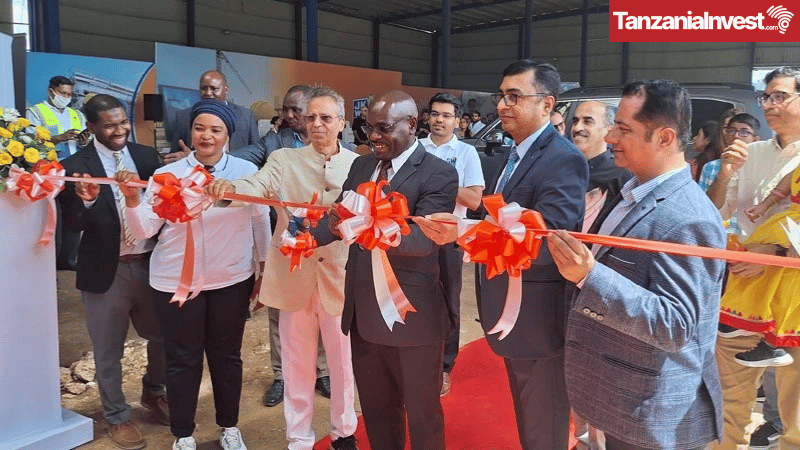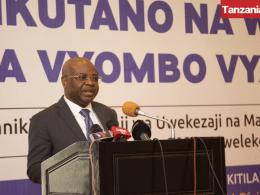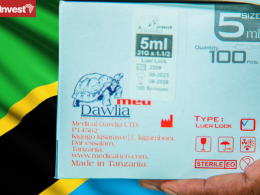On May 18, 2024, Tanzania’s Deputy Minister of Investment, Industry, and Trade, Hon. Exaud Kigahe (MP), inaugurated the Fortune Cement Plant in Vikindu, Mkuranga, Pwani Region.
White cement is frequently used to create polished or textured walls, floors, and ceilings in interior design.
This factory is the first in the Sub-Saharan African region to produce white cement for construction purposes and is identified as the second such facility in Africa.
During the inauguration, Hon. Kigahe emphasized the government’s commitment to increasing local production of white cement to decrease dependency on imports and save foreign exchange.
He noted that the establishment of this factory would not only create job opportunities and boost foreign exchange through exports but also invigorate the local economy.
More than half of the raw materials needed for production are sourced locally, including dolomite and gypsum, with the only major import being white clinker.
Hon. Kigahe assured that the Ministry of Industry and Trade would collaborate closely with the factory to facilitate the export of their products to other African nations under the African Continental Free Trade Area (AfCFTA).
He added that the government is committed to improving the investment climate by enhancing infrastructure such as the Uhuru Railway, constructing a modern Standard Gauge Railway, improving port efficiency, and building a new state-of-the-art airport in Dar es Salaam to accommodate larger aircraft.
The government is also focused on ensuring reliable gas and electricity supplies in both urban and rural areas. The nearing completion of the Mwalimu Nyerere Hydroelectric Power Project, with a capacity of generating 2,300 MW of electricity, is a testament to these efforts.
Hon. Kigahe stated that the industrial sector is vital for Tanzania’s economic growth and plays a crucial role in improving the livelihoods of its citizens.
For this part, Mkuranga District Commissioner, Khadija Nassir, highlighted the district’s industrial needs, noting that Mkuranga, home to around 120 industries, currently lacks sufficient electricity to meet demand.
The district requires 60 Megawatts of electricity daily, but only about 50 Megawatts are available. She urged the government and TANESCO to ensure a stable and adequate electricity supply to attract further investment.
Commissioner Nassir mentioned that reliable and sufficient electricity is essential for industrial production and ensuring this will help attract more investments to the district.










